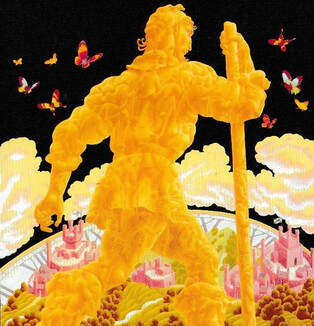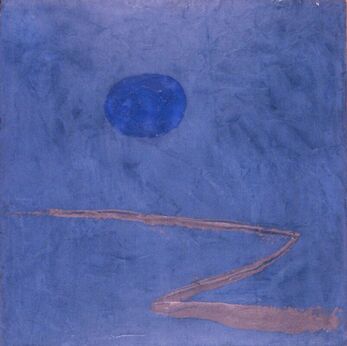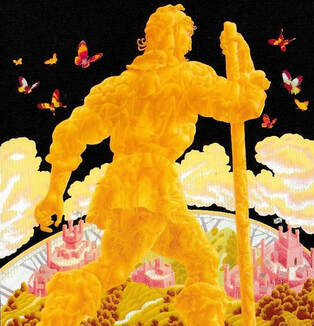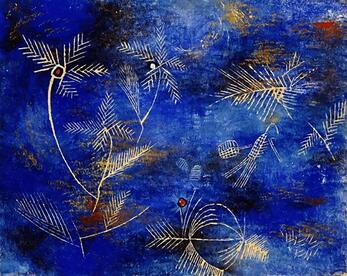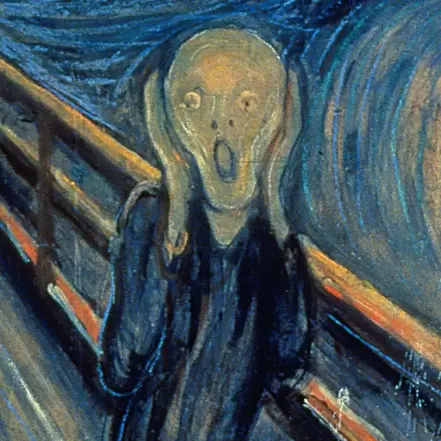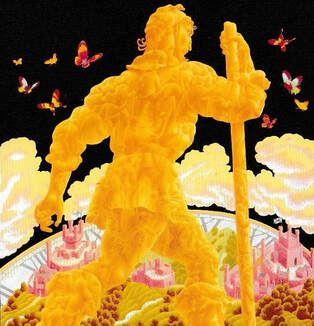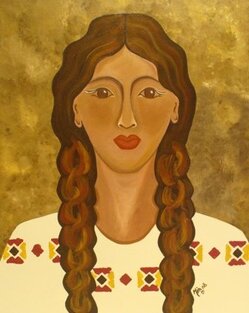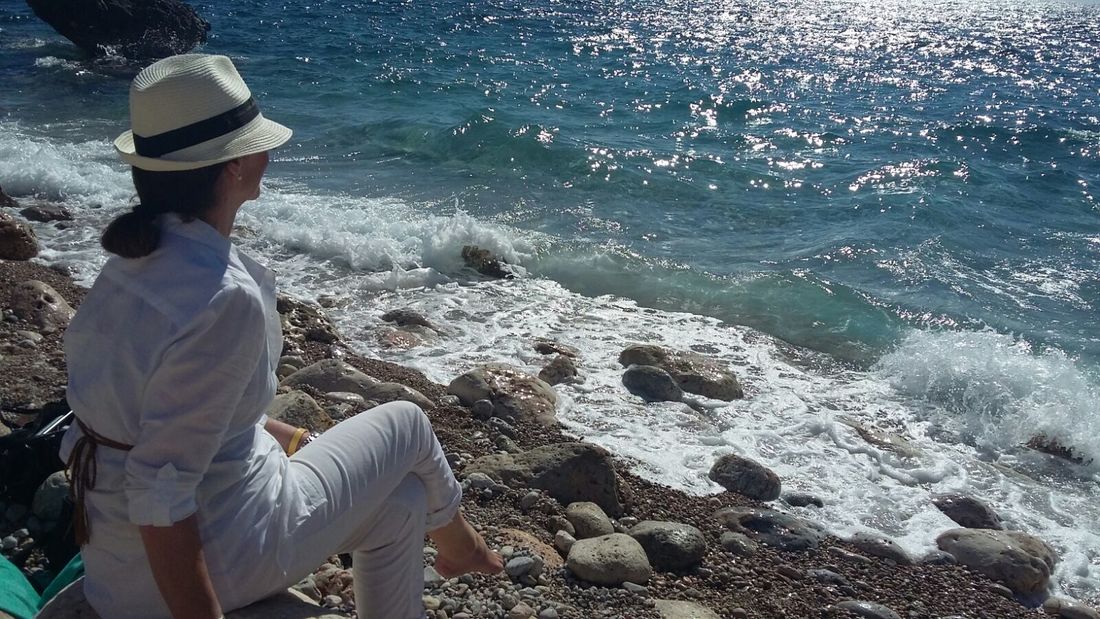Journey to the East
'All Along Down the Ancient Highway'
“Once in their youth the light shone for them; they saw the light and followed the star, but then came reason and the mockery of the world; then came faint-heartedness and apparent failure; then came weariness and disillusionment, and so they lost their way again, they became blind again.
Some of them have spent the rest of their lives looking for us again, but could not find us. They have then told the world that our League is only a pretty legend and people should not be misled by it. ”
― Hermann Hesse The Journey to the East
We moved toward the East - he tells us - but we also travelled into the Middle Ages and the Golden Age; we roamed through Italy and Switzerland, but at times we also spent the night in the tenth century and dwelt with the patriarchs or the fairies.
I also walked alone at times, he tells us - without a tent, without a leader, without a speaker.
- fictional companion to H.H. in Journey to the East
During such times I often found again the places and people of my own past. Sometimes my company consisted of the beloved characters of my books; Almansor, Parsifal, Witiko or Goldmund rode by my side, or Sancho.
When I found my way back to our group in some valley or other, heard the league songs and camped by their leaders' tents, it was immediately clear to me that my excursions into my childhood and my ride with Sancho belonged essentially to this journey.
For our goal was not only the East, or rather the East was not only a country and something geographical, but it was the home and youth of the soul, it was everywhere and nowhere, it was the union of all times.
― Hermann Hesse, Journey to the East
Yet as time passed, even his memories began to dwindle and fade and fearing the story might be lost altogether, he resolved to set it down in a great history of the league and the journey. And yet - even in his wish to record it - he became progressively estranged from it's enthral. And when he looked back to the days at the very peak of his experience he was riddled with doubt.
Did they even really happen?
“Everything becomes questionable as soon as I consider it closely, he explains, everything slips away and dissolves.”
― Hermann Hesse, Journey to the East
Forgetfulness afflicts us all of course - especially as we grow - especially when times are hard - & we too fall out of alignment with what Jung might call the Archetype of the Child - or the Golden One within – and of course - there’s nothing greater than fear and doubt to drive this part of the self into the shadows.
Looking into some of the biographies - especially of his own contemporaries - unexpected links quickly became apparent which threw the relationship between Journey to the East and 1984 into a whole new light. I followed the scent - not really wanting to unearth what I suspected but it was soon clear that Hesse and several of his semi-fictional companions had lived through terrible times of censorship during which the works of numerous artists, thinkers, writers, musicians, philosophers, analysts, and scientists were smeared, disparaged and often silenced by the Nazi authorities of their day.
Hitler had risen to power amidst a great blossoming of modern art and science. Cubism, Surrealism and Expressionism were all busy pushing the boundaries of what had gone before, blurring the edges you might say, peering beneath the surface, challenging accustomed ways of thinking and perceiving. Many too expressed anti-war sentiments. Psychoanalysis was flourishing, especially in Germany and neighbouring countries, and in physics too - even the core assumptions of Newtonian Mechanics had quietly been overturned by game-changing developments in Quantum Theory.
Hitler distrusted all of this, believing such developments partly responsible for Germany’s economic troubles and what he saw as moral decline. He wanted to return the nation to its former glory, to it's trusted, traditional values.
Hesse himself tried to rise above the fray when the crack-downs first began and
tried to warn German intellectuals to retain their humanity and to turn away from the increasingly dominant nationalist and popularist rhetoric that was spreading throughout the population like wild fire.
"Oh friends, he wrote in an article at the outbreak of war - not these sounds."
But it wasn’t long before he too became blacklisted. Partly because his wife was Jewish and partly because of his association with Freud, with whom he had been in analysis.
In a letter reprinted in the Jewish Press - the Nazi condemnation of him is clear.
Once and for all, it must be made public that Hesse is a classic example of how the Jew can poison the soul of the German people. For if at that time, when he took no delight in the war…he had not fallen into the clutches of the Jew Freud and his psychoanalysis, he would have remained the German writer we all loved so well. The warping of his soul can only be ascribed to this Jewish influence.
The Jewish Press
Tragically however he could not save his wife's immediate family, all of whom were murdered in the concentration camps - a horror we are told that haunted him for the rest of his life.
also black-listed in Germany
For those who didn't escape - those who were effectively silenced and broken - trapped within the nightmare - the Journey to the East - the journey beyond time and space - must have seemed as if it had indeed been just a pretty legend - not to trusted.
Was it still there -was it still going on? The hope is that it was - in some way - that it always is - no matter what - which was surely the reason Hesse tried to warn his contemporaries not to get drawn in - not to get over-shadowed, and forget, like his own character H.H. had done. He wanted to remind them - that the dream is eternal. Always here. Always now - however crazy or naive that might seem, even for those dear ones who tragically lost their lives.
Maybe this is why Journey to the East was the book the dreamer took to the secret meeting - because it points a way back out of darkness - the return to innocence and wonder - to the - the home and youth of the soul ....that is everywhere and nowhere - as Hesse so eloquently wrote - the union of all times.
These artists, writers, and scientists, together with all those from times gone by were all part of this eternal journey - all luminaries - midst a great personal and collective forgetting - diamonds in the night, as the poet sings, all along down the ancient highway.
Anne Maria
x x x
Authors, artists, composers, philosophers, scientists, sociologists & politicians
suppressed by Nazi Germany
Ernest Hemingway,
Bertolt Brecht,
Thomas Mann,
John Dos Passos,
H. G. Wells
Herman Hesse
Artists
Paul Klee
Matiise
Elfriede Lohse-Wächtler
Pablo Picasso
Claude Monet
Vincent van Gogh
Composers
Gustav Mahler
Felix Mendelsohn
Arnold Schoenberg
Philosophers, scientists, and sociologists
Albert Einstein,
Niels Bohr,
Edmund Husserl,
Karl Marx,
Friedrich Engels,
Friedrich Nietzsche,
Sigmund Freud,
Max Scheler
Politicians
Konrad Adenauer,
Theodor Heuss
Hermann Karl Hesse (German: 1877 – 1962) was a German-born Swiss poet, novelist, and painter. His best-known works include Demian, Steppenwolf, Siddhartha, The Glass Bead Game, and "Journey to the East" each of which explores an individual's search for authenticity, self-knowledge and spirituality. In 1946, he received the Nobel Prize in Literature.
There are several other projects in the pipeline - at various stages of completion including a new exploration of Dante Alighieri, his Divine Comedy & the soul's journey of transformation. It will coincide with a series of zoom presentations I have been asked to present in January. But before that I very much hope to publish a Christmas blog. Fingers crossed as always.
Much love
Anne Maria
x x x
http://www.youtube.com/c/annemariaclarke
More fairy-stories, myths, legends and books by
Anne Maria Clarke
http://www.archivepublishing.co.uk/Transpersonal Books - Transpersonal Psychology. Understanding the Soul - Expanding Consciousness
https://twitter.com/MariaClarke
www.annemariaclarke.net
Hold the Light/blog @ http://www.annemariaclarke.net/blog
